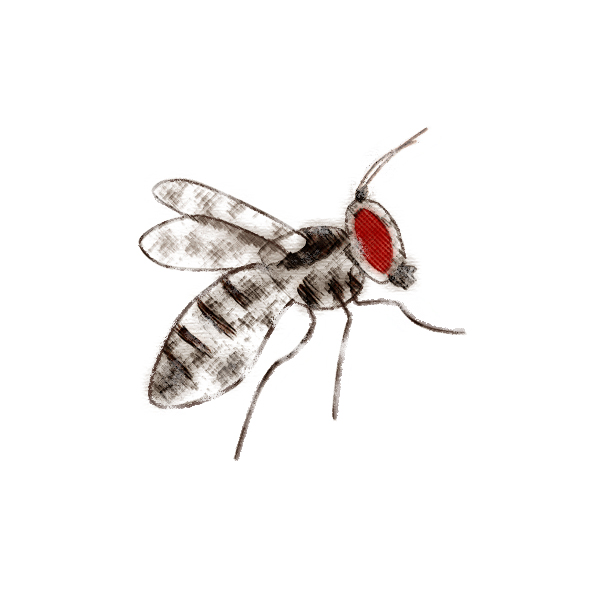The robusta group contains seventeen described species (Baechli, 2005) found mainly in the temperate regions of North America, Europe, and Asia. There is at last one Afrotropical taxon. Throckmorton (1975) reports that the robusta species group has been reared from sap fluxes. The majority of these species can be reared in the laboratory.
Narayanan (1973) has examined the phylogenetic relationships in six species of the robusta group using polytene chromosome banding patterns. Drosophila colorata was arbitrarily designated as standard so it appears at the base of this unrooted phylogeny. Based on their chromosomes, D. morkwakii and D. colorata are closely related. Drosophila lacertosa and D. robusta are sister taxa, with D. sordidula and D. pseudosordidula being intermediate species in the phylogeny.
The robusta group is thought to be most closely related to the melanica species group (Levitan, 1982), with which it shares a common distributional pattern and ecological affinities. Stalker (1966) considered the robusta species group to be the sister of the Hawaiian Drosophilidae on the basis of polytene chromosome banding patterns. This is in contrast to Throckmorton (1975), who suggested that the Hawaiian species were more closely allied with the immigrans-Hirtodrosophila radiation and the robusta group was placed in the virilis-repleta radiation. Grimaldi (1990) also suggested an alternative sister group for the Hawaiian Drosophilidae. It is clear from a number of molecular studies that the robusta group is more closely related to the Hawaiian taxa than the immigrans-Hirtodrosophila radiation, supporting the hypothesis of Stalker (1966). However, it may not be the exact sister group as other species in virilis-repleta taxa are also closely related to the Hawaiian lineage (DeSalle, 1992; Remsen and DeSalle, 1998; Remsen and O’Grady, 2002).
(excerpted from Markow and O’Grady, 2006, Chapter 1)
Showing all 2 results

